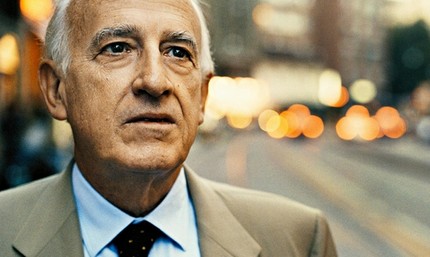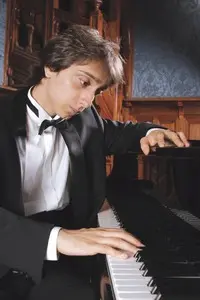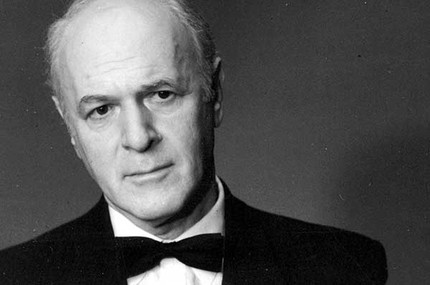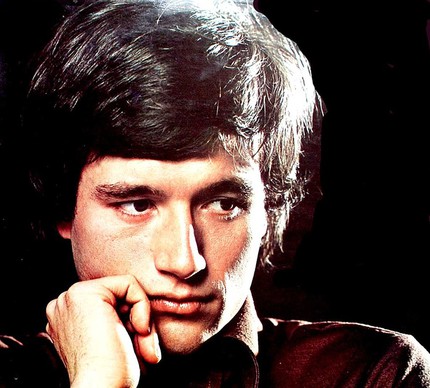
Дежё Ранки (Dezső Ránki) |
Ránki Dezső

In the “new wave” of Hungarian pianistic art that rose on the concert horizon in the early 70s. Deje Ranki can rightly be considered a leader. He attracted attention earlier than others, he was the first to win the laurels of a concert performer, and then the high distinctions of his country. From the very beginning, his creative biography was extremely successful. From the age of eight he was a student of a special music school in Budapest, at 13 he entered the conservatory, in the class of the teacher Mikloshne Mate, at 18 he became a student at the Music Academy. Liszt, where he studied under the guidance of outstanding masters – Pal Kadosi and Ferenc Rados, and immediately after graduating from the academy (1973) he received his own class here. Later, Ranki still improved in Zurich with G. Anda.
During the years of study, Ranki took part in the National Competitions for students of secondary music schools (conservatories) three times and became the winner three times. And in 1969 he received the first prize at the International Schumann Competition in Zwickau (GDR). But this victory did not bring him real fame – the resonance of the Schumann competition in Europe is relatively small. The turning point in the biography of the artist was the next – 1970. In February, he successfully performed in Berlin, in March he played for the first time with an orchestra in Budapest (the Mozart Concerto in G major was performed), in April he made his debut in Paris, and in May he made a big tour of Italy, including concerts in the largest halls of Rome and Milan. The public started talking about the young Hungarian, his name was full of newspapers, and starting from the next season he became a prominent figure in world concert life.
Ranki owed such a rapid rise to the rare harmony of his talent, artistic freedom, which gave rise to critics to call him a “born pianist”. Everything comes easily to him, his talent is equally natural “applicable” to any area of an extensive repertoire, although, according to the artist himself, the inspired world of romantics is closest to him.
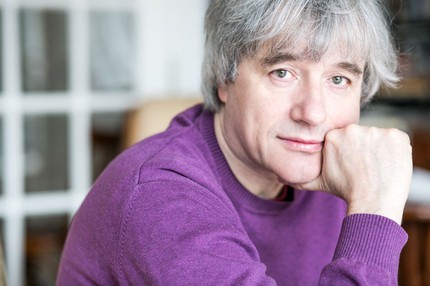
Characteristic in this regard are not only his very diverse concert programs, but also the records, which Ranki managed to play quite a lot over the past decade. Among them stand out in the first place solid monographic albums, more than once marked by international distinctions. His first album – Chopin – received the “Grand Prix” of the French Academy of Records in 1972; later, his recordings of works by Bartok (especially the “Children’s Album”), Haydn (late sonatas), Schumann, Liszt were highly appreciated. And every time the reviewers note, first of all, the subtlety of the transfer of music, sense of style, poetry, as well as the harmony of interpretation, which distinguishes him from his friend and rival Zoltan Kocis.
In this regard, two reviews are of interest, separated from each other by hundreds of kilometers and several years. Warsaw critic J. Kansky writes: “While Zoltan Kocis’s playing is primarily struck by virtuosic brilliance, liveliness of rhythm and dynamic energy, his senior colleague Dezhe Ranki conquers primarily with the elegance and subtlety of his playing, based on equally strong technical skill, but wearing at the same time, a distinct chamber-intimate character … Maybe his Liszt is not a titanic-explosive giant, whose appearance we know from the interpretations of the great masters – Horowitz and Richter, but the young compatriot of the brilliant composer allows us to see other facets of his appearance – the appearance of a mystic and poet ” .
And here is the opinion of the West German musicologist M. Meyer: “From the very beginning of his career, this pianist has established himself as a multifaceted and intellectual interpreter. This is evidenced by the impressive repertoire of his recordings, and his concert programs. Ranki is a self-confident and always self-controlled pianist, who differs from his compatriot Kocis by calmness, which sometimes even turns into equanimity. He does not allow musical impulses to overflow, relying much more on a premeditated interpretation and calculated form. His technical equipment allows him not to compromise even in Liszt: he plays his sonatas with hardly less virtuosity than Rubinstein himself.”
Deje Ranki works with great intensity. He has already traveled all over the world, in addition to concerts and solo recordings, he constantly pays attention to ensemble music making. So, he recorded works by Beethoven for cello and piano (together with M. Perenyi), piano duets by Mozart, Ravel and Brahms (in collaboration with Z. Kochis), a number of quartets and quintets with the participation of the piano. The pianist was awarded the highest awards of his homeland – the F. Liszt Prize (3) and the L. Kossuth Prize (1973).
Grigoriev L., Platek Ya., 1990



